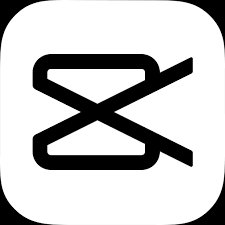How to Use a Calorie Calculator to Determine Daily Caloric Needs for Weight Loss or Maintenance
Managing your daily calorie intake is a critical part of maintaining a healthy lifestyle, especially if you aim to lose weight or keep your current weight stable. A tool that simplifies this process is a calorie calculator. It’s designed to estimate the number of calories you should consume each day based on several factors like age, gender, activity level, and fitness goals. In this article, we’ll dive into how you can use a calorie calculator effectively for weight loss or maintenance and understand why monitoring your calorie intake is important.
What Is a Calorie Calculator?
A calorie calculator is a tool that helps you estimate the number of calories your body needs on a daily basis to maintain your current weight. By inputting details such as your height, weight, age, gender, and level of physical activity, the calculator determines your Total Daily Energy Expenditure (TDEE), which is the number of calories you need to maintain your weight.
If your goal is weight loss, the calculator can also help you determine how many calories you should reduce from your TDEE to create a caloric deficit. On the other hand, if you are looking to maintain your weight, it will suggest a target calorie intake that matches your TDEE.
Factors that Influence Caloric Needs
Understanding the factors that affect your daily caloric needs is essential for using a calorie calculator effectively. Here are the most important ones:
- Age: As you age, your metabolic rate tends to slow down. This means that older adults generally require fewer calories than younger individuals.
- Gender: Men generally have more muscle mass than women, and muscle burns more calories than fat. As a result, men tend to require more calories than women to maintain or lose weight.
- Height and Weight: Taller and heavier individuals need more calories to maintain their weight than shorter and lighter individuals. Your body mass is directly correlated with the number of calories you burn at rest.
- Activity Level: Your physical activity is a major determinant of your daily caloric needs. If you lead a sedentary lifestyle, your body burns fewer calories, while highly active individuals (athletes, for example) need significantly more calories.
- Fitness Goals: Whether your goal is to lose weight, maintain your weight, or gain muscle mass, your calorie requirements will differ. A calorie calculator takes your goal into account and adjusts its recommendations accordingly.
How to Use a Calorie Calculator
Using a calorie calculator is a straightforward process. Here’s a step-by-step guide:
Step 1: Input Basic Information
The first step in using a calorie calculator is entering your basic information, which includes your age, height, weight, and gender. This information helps the calculator estimate your Basal Metabolic Rate (BMR), which is the number of calories your body needs to perform basic functions like breathing and digestion, even at rest.
Step 2: Select Your Activity Level
The next step is to select your activity level, which can range from sedentary to highly active. Most calculators will offer options such as:
- Sedentary (little or no exercise)
- Lightly active (light exercise or sports 1-3 days a week)
- Moderately active (moderate exercise or sports 3-5 days a week)
- Very active (intense exercise or sports 6-7 days a week)
- Extra active (very hard physical job or training twice a day)
This information is critical because your activity level significantly influences your TDEE.
Step 3: Choose Your Fitness Goal
At this point, the calorie calculator will ask for your fitness goal. Are you aiming to lose weight, maintain your current weight, or gain muscle mass? For weight loss, the calculator will suggest creating a caloric deficit (consuming fewer calories than you burn), while for weight maintenance, it will match your caloric intake to your TDEE.
Step 4: Get Your Caloric Estimate
Once you’ve entered all the necessary details, the calculator will generate a recommended daily caloric intake. This number represents the number of calories you should consume to meet your specific fitness goals. For example:
- If you want to maintain your weight, the number of calories suggested will equal your TDEE.
- If you want to lose weight, it will recommend a caloric intake lower than your TDEE to create a deficit.
- If you want to gain muscle, it may suggest a slight caloric surplus to fuel muscle growth.
Step 5: Monitor and Adjust
Once you start following the calorie recommendations, it’s important to monitor your progress. You might need to make adjustments based on how your body responds. If you are losing weight too quickly or too slowly, you may need to fine-tune your caloric intake.
Understanding Caloric Deficit for Weight Loss
A caloric deficit is the key to losing weight. It happens when you consume fewer calories than your body burns. This forces your body to use stored fat for energy, resulting in weight loss.
To create a healthy caloric deficit, aim to reduce your daily caloric intake by 500-1,000 calories, which typically leads to a weight loss of 0.5 to 1 kilogram per week. Extreme calorie cuts are not recommended, as they can lead to nutrient deficiencies, fatigue, and loss of muscle mass.
How Calorie Calculators Help with Weight Maintenance
If you’re looking to maintain your current weight, the calorie calculator can help you determine your TDEE, which is the number of calories you need to consume daily to maintain your weight without gaining or losing.
Once you know your TDEE, you can plan your meals and daily caloric intake accordingly, making it easier to keep your weight stable. This is especially important after weight loss when you want to prevent rebound weight gain.
The Role of a Balanced Diet in Calorie Control
While calorie calculators are useful for determining how much you should eat, it’s equally important to pay attention to the quality of the calories you consume. A balanced diet that includes a mix of carbohydrates, proteins, fats, vitamins, and minerals is crucial for overall health, regardless of your caloric intake.
- Protein: Protein is essential for muscle repair and growth. It also has a high thermic effect, meaning your body burns more calories digesting protein than it does carbohydrates or fats.
- Carbohydrates: Carbs provide energy, but it’s important to choose complex carbohydrates (whole grains, vegetables) over simple carbs (sugary snacks, refined grains).
- Fats: Healthy fats like those found in olive oil, avocados, and nuts are important for hormone production and cell health.
- Vitamins and Minerals: Micronutrients support everything from immune function to bone health, so ensure you’re getting enough through fruits, vegetables, and supplements if necessary.
Integrating Exercise for Optimal Results
Exercise plays a vital role in weight loss and maintenance. In addition to following the caloric recommendations from the calorie calculator, aim to include regular physical activity in your routine. Strength training helps build muscle mass, which increases your resting metabolic rate, allowing you to burn more calories throughout the day. Cardio exercises, like running or cycling, increase your daily calorie expenditure, helping you maintain a caloric deficit for weight loss.
Importance of Health Insurance for Your Fitness Journey
As you work towards your fitness goals, it’s important to safeguard your health. Incorporating a good health insurance plan into your lifestyle ensures that you have coverage for medical expenses, preventive care, and other health-related emergencies. Health insurance can help you stay focused on your fitness journey without worrying about potential healthcare costs.
Conclusion
A calorie calculator is an invaluable tool for anyone looking to lose weight or maintain their current weight. By accurately determining your daily caloric needs based on factors like age, weight, activity level, and fitness goals, you can better manage your calorie intake. Coupled with a balanced diet and regular exercise, tracking your calories ensures that you stay on track towards achieving your weight goals. And while you work on your fitness, securing a good health insurance plan can provide you with the necessary support and peace of mind to focus on your health without unnecessary stress.














Post Comment